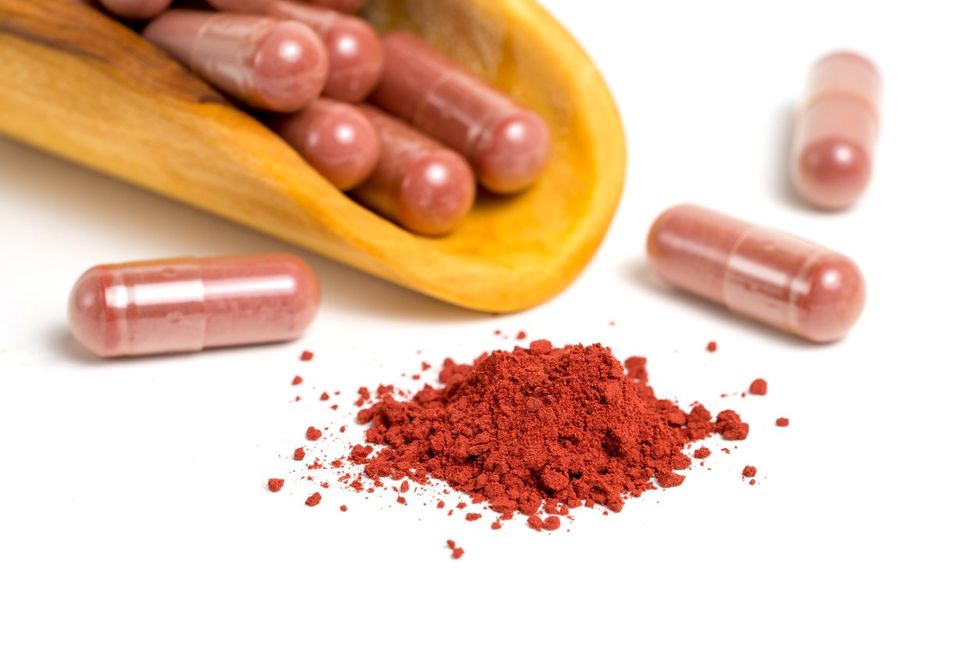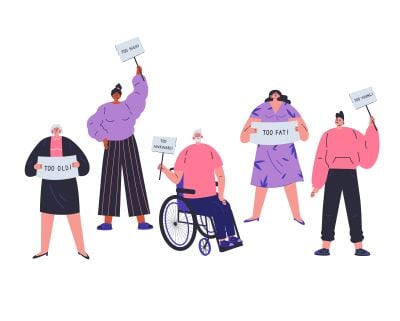

Fact: Red yeast rice is the most colorful name in the supplement game. It certainly sounds cool as an acronym (#RYR vibes). But did you know that red yeast rice is produced from a mold, not a yeast? We guess “red moldy rice” just doesn’t sound the same.
If you have high cholesterol, you may have heard of red yeast rice as a possible alternative to prescription cholesterol-lowering medications. This ruby red food and dietary supplement is also believed to have anti-cancer properties.
But is it too good to be true?
Here’s what you need to know about the potential benefits and red flags to consider before taking red yeast rice.
What is red yeast rice?
Red yeast rice has been around for centuries and is known as a “natural statin” in traditional Chinese medicine. It is produced by fermenting rice with a type of mold called Monascus purpureus.
Depending on the strain and fermentation conditions, the fungus enhances rice with compounds called monacolins, which can reduce cholesterol levels in the body. One of those monacolins, monacolin K, has the same composition as the drug lovastatin, a prescription cholesterol-lowering drug.
Read: Medications to lower cholesterol 101 >>
What are the possible benefits of red yeast rice?
The most famous benefit of red yeast rice is its ability to lower cholesterol thanks to monacolin K. Some studies have shown that taking red yeast rice daily for six to eight weeks can reduce total cholesterol and LDL (“bad”) cholesterol levels.
Red yeast rice may also have anti-cancer benefits. One study He discovered that red yeast rice stopped the growth of cancer cells in the colon. and a different study discovered that red yeast rice extracts stopped the growth of breast cancer cells. But more research needs to be done on the anti-cancer benefits of taking the supplement.
Read: I was “too young” to have colon cancer >>
How much red yeast rice do you need to lower cholesterol levels?
Lower cholesterol levels are directly related to the amount of monacolin K in red yeast rice supplements. Research shows that taking up to 10 mg of monacolin K daily is associated with lower cholesterol levels.
What does the FDA say about red yeast rice?
This is where things get a little complicated. The FDA approved lovastatin, which is basically monacolin K, as a medication before it was marketed as a supplement. Therefore, it is illegal to sell any product that includes lovastatin or enough monacolin K to function as a statin in the US as a dietary supplement. Over the years, the FDA has issued warnings against companies marketing supplements added or enhanced with lovastatin and monacolin K.
As a result, red yeast rice products seen online and in the supermarket typically do not list the amount of monacolin K on the product label. The product may not contain monacolin K, although most will have some level of the cholesterol-lowering ingredient, but you won’t know for sure the actual amount.
What are the side effects of red yeast rice?
Because red yeast rice can act like a statin, the same side effects can occur. These may include:
- liver damage
- Kidney damage
- Muscle disorders
Some people experience other side effects. These may include:
- Acidity
- Dizziness
- abdominal pain
- Headache attacks
Red yeast rice products may contain citrinin, which can cause kidney damage.
Who should not eat red yeast rice?
Red yeast rice may not be an option for everyone. You should not take it if you are taking cholesterol-lowering medications, such as a statin, because it may increase the risk of serious side effects.
Additionally, people taking certain substrate medications (CYP450 3A4 or P-glycoprotein), including some antibiotics and antifungals, should not take red yeast rice as it may affect the way the body metabolizes medications. If you are taking any medication and do not know if it is a substrate drug, be sure to check with your healthcare provider.
Is there anything specific that women and those assigned female at birth should know about red yeast rice?
Red yeast rice is not recommended for pregnant or lactating people because there are no clinical studies, good or bad, that demonstrate the effect of taking the supplement during pregnancy.
Is red yeast rice safe?
In general, red yeast rice is considered safe and has few side effects. However, because the amount of monacolin K is usually not listed on supplement labels, you never know what you will get. For example, one online brand says its red yeast rice supplement has “appropriate levels of natural monacolin compounds, especially monacolin K.”
If you are considering red yeast rice for cholesterol, the supplement may not contain enough monacolin K to make a difference or have any benefit. High cholesterol can lead to serious health problems, including heart disease, the leading cause of death among women in the US.
As with any supplement, it’s a good idea to talk to your healthcare provider before giving red yeast rice the green light.
From the articles on your site
Related articles on the Web







